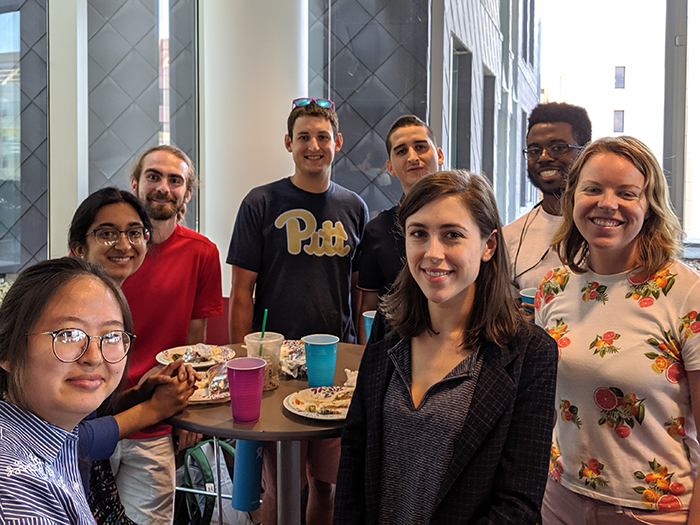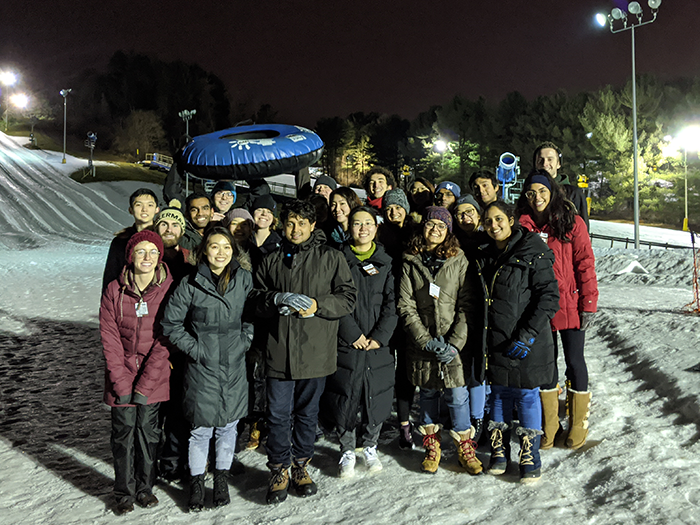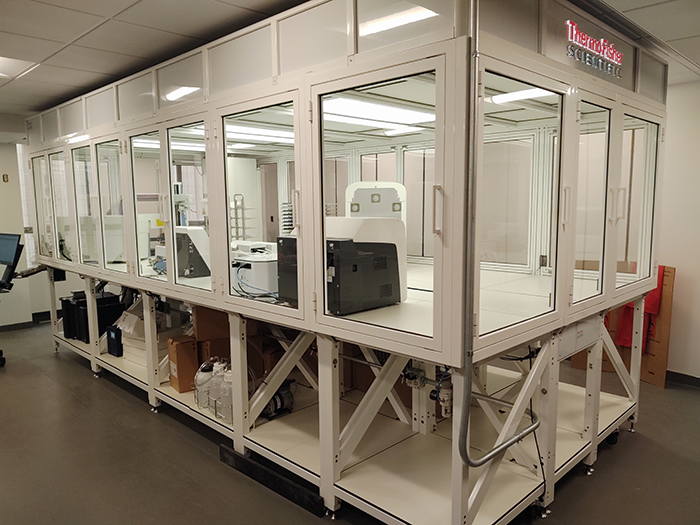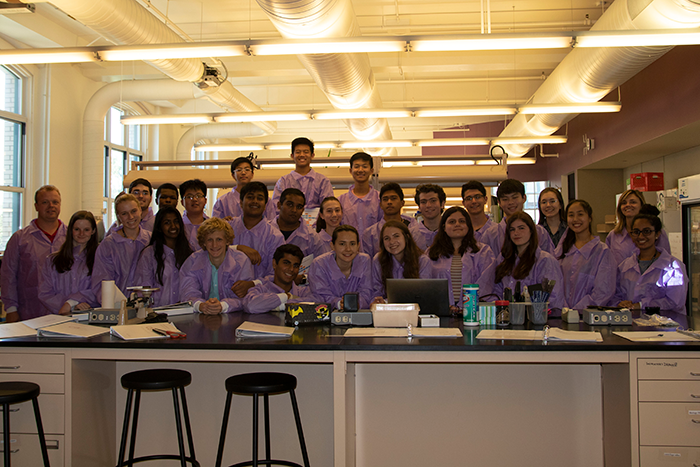Academic Programs in Computational Biology
Why study computational biology at Carnegie Mellon University?
We have a unique approach to computational biology -
- Our educational programs graduate over 50 excellent students per year who come to CMU from around the world.
- Students in all of our degree programs are expected to complete a challenging rotation of courses from the Carnegie Mellon School of Computer Science in addition to acquiring a rigorous biological grounding.
- Our graduates have gone on to work in top pharmaceutical, data analysis, and bioinformatics firms.
You can learn about our department’s education and research vision at our About Us page.
Courses Offered

Ph.D. in Computational Biology
A joint Carnegie Mellon University Ray and Stephanie Lane Computational Biology Department and University of Pittsburgh Department of Computational and Systems Biology Program
The Joint CMU-Pitt Ph.D. Program in Computational Biology (CPCB) provides interdisciplinary training in using quantitative and computational approaches to tackle scientific questions that lie at the interface of the life, physical, engineering, and computer sciences. CPCB trainees are taught and mentored by leading experts at two of the foremost computer science and biomedical research institutions in the world.

M.S. in Computational Biology
A Joint Ray and Stephanie Lane Computational Biology Department and Department of Biological Sciences Program
The MSCB program seeks to train the world’s best Computational Biologists at the Master’s level. The curriculum provides both breadth and depth of training in Computational Biology and is built on a solid foundation of Biology, Computer Science, Statistics, and Machine Learning (Data Sciences). Interested students are also given opportunities to pursue research. Our graduates are prepared for rewarding jobs in industry or to pursue their doctoral degrees at top universities.

M.S. in Automated Science
The Masters of Science in Automated Science: Biological Experimentation (MSAS) program trains practitioners in the design, implementation, and application of laboratory automation and artificial intelligence in scientific research. Students train with world-class faculty, including those from the top-ranked School of Computer Science. Graduates become leaders in the emerging paradigm of Automated Science – the combination of robotic scientific instruments, Machine Learning, and Artificial Intelligence for iteratively building predictive models from experimental data and selecting new experiments to improve them. Students have opportunities to do research projects with Carnegie Mellon Faculty, to do summer internships with relevant companies, and to do collaborative projects with industrial sponsors.
Our graduates are prepared for rewarding jobs in industry or to pursue their doctoral degrees at top universities.

Undergraduate Program in Computational Biology
Our undergraduate program is training the next generation of computational scientists, doctors, and biotech leaders. The bachelor's degree in computational biology is one of four primary majors available to study in the world-famous Carnegie Mellon School of Computer Science, and we offer an additional major program, a minor, and a concentration as well.
We promise a one-on-one research experience to all of our majors, we love throwing social events for our students, we provide dedicated academic and professional advising, and we connect our students to opportunities in industry.

Pre-College Program in Computational Biology
In our unique three-week program, high school students learn both the computational and laboratory skills needed in modern biology. Traditionally, these skills have been taught as part of disjoint courses, but our program highlights the vital interplay between generating biological datasets in the lab and analyzing these datasets computationally. On a typical day, students spend half the day in a wet lab, and the other half of the day programming algorithms to analyze the biological data that they generate.
